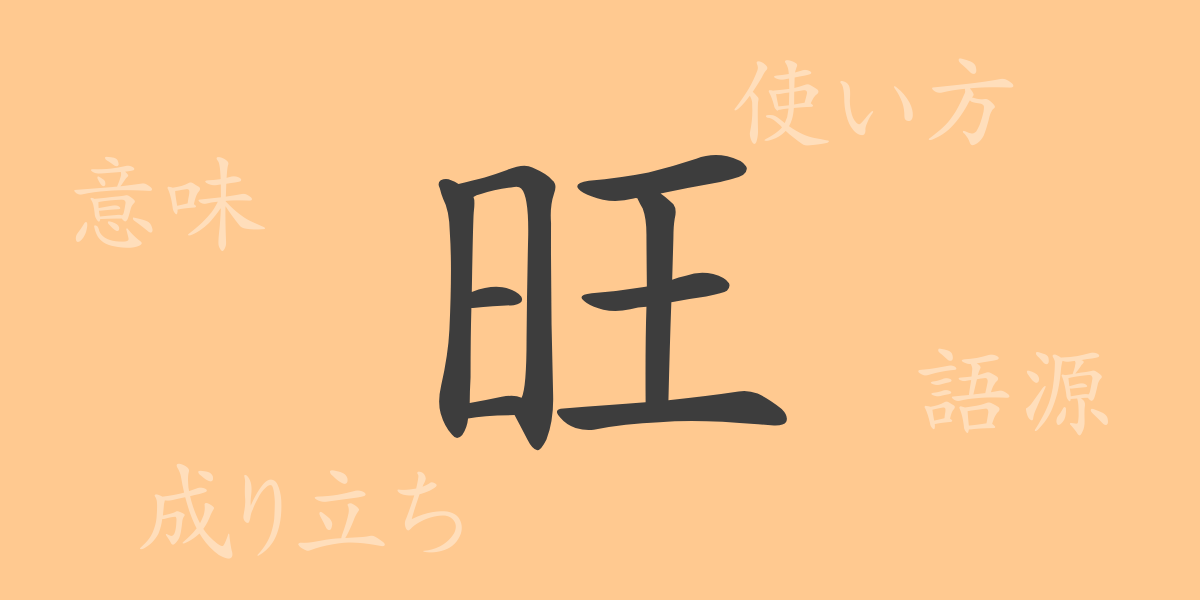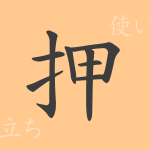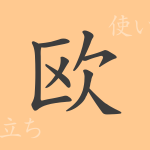“
Kanji characters are indispensable to Japanese culture. The deep meanings and histories that each character holds reflect the rich world behind the language. In this article, we will focus on the common kanji character “”旺”” ( ō), delving into its origin, meaning, usage, and even compound words. Through this article, we hope that you will discover the power and charm of “”旺”” (ō).
The Origin (Etymology) of 旺 ( Ō)
As its form suggests, the kanji “”旺”” ( ō) represents the sun rising above the mountains. From this pictograph, it came to mean being vigorous like the sun, or being in a “”旺盛”” (ōsei) state. In ancient Chinese texts, “”旺”” ( ō) was also used as a character symbolizing prosperity and growth, and its basic meaning has not changed over time.
The Meaning and Usage of 旺 ( Ō)
“”旺”” ( ō) has meanings such as “”to be prosperous,”” “”to flourish,”” and “”to thrive.”” It can be used in expressions like “”業績が旺盛”” (Gyōseki- ga- ōsei), meaning “”business performance is thriving,”” or “”生命力が旺盛”” (Seimeiryoku- ga- ōsei), referring to “”vigorous vitality”” in the natural world. It can also be used in contexts such as “”情熱が旺盛”” (Jōnetsu- ga -ōsei), indicating a state of heightened emotions.
Reading, Stroke Count, and Radical of 旺 (Ō)
The kanji “”旺”” ( ō) has a specific reading and structure.
- Reading: The on’yomi is “”ō,”” and there is no specific kun’yomi.
- Stroke Count: 旺 has a total of 8 strokes.
- Radical: The radical is “”日”” (Hi).
Idioms, Phrases, and Proverbs Using 旺 ( Ō) and Their Meanings
Here are some idioms, phrases, and proverbs that include “”旺”” ( ō):
- 旺盛 (ōsei): A state of being energetic and prosperous.
- 旺角 ( ōkaku): A place name in Hong Kong, known as a bustling area.
- 旺期 (ōki): The most flourishing period.
- 旺然 ( ōzen): A literary expression describing a thriving state.
These idioms and phrases reflect the meaning of “”旺”” (ō), which is “”to be prosperous”” or “”to have vitality,”” and are used in various situations in daily life.
Summary of 旺 ( Ō)
As its pictograph suggests, the kanji “”旺”” (ō) represents the sun rising above the mountains, and from there, the meaning of “”to be prosperous”” and “”to thrive”” was born. As a common kanji character in Japanese, it can be used to express business, nature, and emotions. As seen in various idioms and phrases, its usage is wide-ranging. We hope that through this article, you have understood the unique charm and historical background of the character “”旺”” ( ō).
“

























